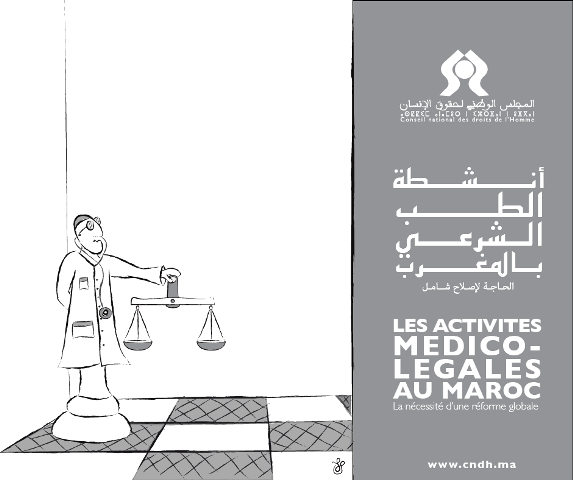A bill on forensic activities, already addressed by CNDH, is now adopted by government
The Government Council adopted on 20 September 2018 in Rabat the Bill 77-17 regulating the practice of forensic medicine in Morocco.
The purpose of this draft law is to establish a comprehensive legislative framework governing the exercise of forensic medicine. It also aims to set out legal provisions likely to give a greater credibility to medical certificates and expertise submitted to courts, while handling various disputes.
This text contributes to guaranteeing fair trial and strengthening Moroccan policies to fight against torture in accordance with UN standards. This text also unifies the practice of forensic medicine in Morocco, provides for capacity building for those involved in forensic activities as well as incentives for internal doctors by providing them with better career plans. This bill also establishes a definition of the forensic physician, his powers, rights and obligations, as well as the procedures for exercising the profession of mandated forensic physicians and the parties authorized to mandate them.

To be noted that the CNDH, while being aware of the role played by forensic activities in guaranteeing access to a fair trial, which respects the rights of the defence and victims, published in July 2013 the findings of a study on forensic activities in Morocco recommending a reform of this sector.
This study addressed three fields of forensic activities: the thanatological field including autopsies and external examinations of corpses, the field of forensic certificates of all kinds, including for women and children victims of violence and finally the field of forensic expertise.
The study focused on forensics-related dysfunctions, including the lack of training and the obsolescence of basic infrastructure and equipment, as well as the sector’s governance (procedures, organizations ...).
It presented several recommendations advocating a comprehensive reform of forensic activities in Morocco. In particular, it advocates the establishment of a national institutional framework for forensic activity and a central structure for the design and implementation of a master plan on forensic activities.
Download the executive summary of the CNDH study on Forensic Activities






















